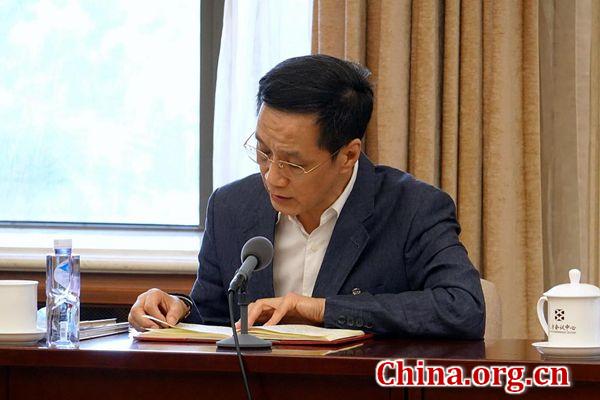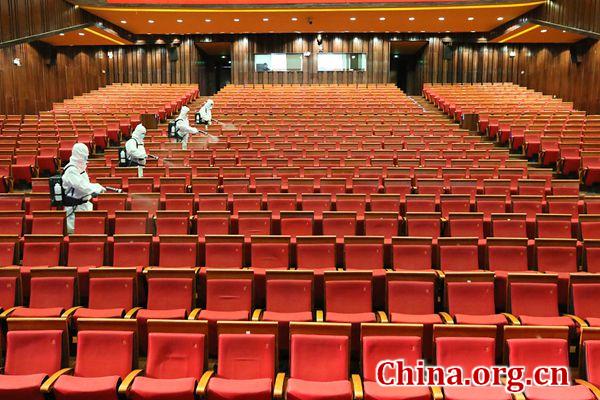Actor calls for measures to save theater business after pandemic
- By Zhang Rui
 0 Comment(s)
0 Comment(s) Print
Print E-mail China.org.cn, May 27, 2020
E-mail China.org.cn, May 27, 2020

Chinese actor Feng Yuanzheng anxiously brought up a new proposal at this year's session of China's top advisory body, hoping to save the theater industry from the COVID-19 pandemic.
The veteran actor is a member of the 13th National Committee of the Chinese People's Political Consultative Conference (CPPCC). As he watched the cultural industry suffer massively due to the outbreak of the new coronavirus earlier this year, he set out to research the industry and its difficulties.
The China Association of Performing Arts recently carried out a nationwide sample survey. It estimated that more than 20,000 shows were canceled or postponed between January and March, resulting in a direct 2 billion yuan loss of ticket sales for China's performance market.
According to Feng, most performing arts companies are privately owned. "When they perform, they earn money. But if they stop performing, they have no money at all," Feng said, revealing that many shows are permanently canceled even though the theaters and venues are set to reopen soon. "They were hit really hard. Bosses of the companies have to consider how they will pay salaries and the rent of offices with nothing."
Not long ago, the Ministry of Culture and Tourism's market administration office issued pandemic prevention and control measure guidelines for the reopening of theaters and other performance venues. It mentioned that the size of audiences in a theater should be kept at below 30% of a venue's total seats. But industry insiders are upset, as considering the costs, such low attendance ensures troupes or companies will not earn any money. They will actually lose money.

Feng Yuanzheng proposed that the government should introduce some preferential policies to rescue the industry; for example, the China National Arts Fund and cultural funds of various levels could fork out urgently needed money to save the industry. "The China National Arts Fund previously supported new theatrical projects and the training of new talents, but now theaters and existing shows seem to have urgent monetary needs and private companies cannot simply rise up again by relying solely on their own devices," he said. "Besides policy support, financial support is very important too."
He believes China had grown into a mature performing arts market before the pandemic. But after the pandemic hit, it still has a long way to go in terms of creating stage dramas, recruiting actors and attracting audiences to come back to theaters.
The actor also suggested that theatrical troupes and show companies should unite and interact, both online and offline, to promote themselves and cultivate larger audiences. He also appealed to the troupes to explore additional options and methods for earning money, developing merchandise, carrying out crossover cooperation and holding educational events. At the same time, Chinese authorities should supervise the market to avoid outrageous ticket price increases and excessive hype around short-term gains, as such practices could hurt the industry in the long run.
"It will be a critical time to save the market during the second half of 2020 to 2021," he added. "Those who create the arts and shows are the ones with dreams. I don't want their dreams to be shattered."





